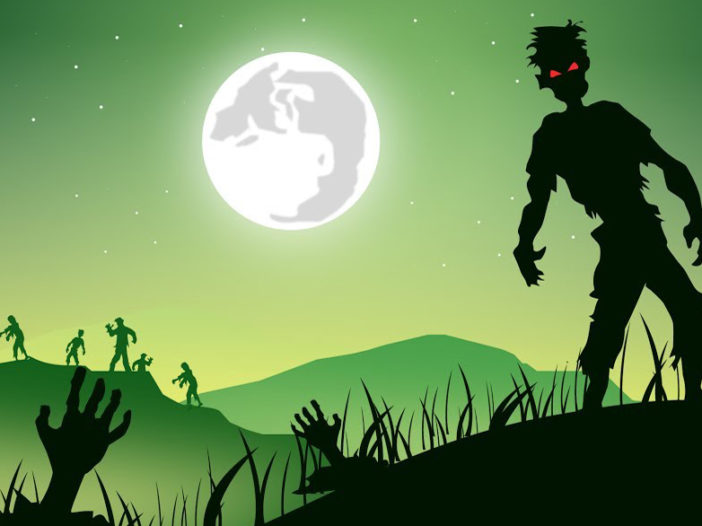
“If I had known the world was ending, I would have brought better books,” Dale Horvath laments to another survivor in an episode of the Walking Dead, the long-running post-apocalyptic television series that I binged-watched recently one rainy evening. These days, with the threat of a second wave of the pandemic, staged re-openings and all-too-tentative school and work schedules, some of us might be tempted to think that we, too, are living through a similar experience and we must again stock up on alcohol, more toilet paper, and spam.
We aren’t, and please don’t. So far anyway, this isn’t about siphoning gas from abandoned cars or marauding zombie hordes. This is a public-health crisis, and it will have an end. Yet we still find ourselves captivated by these post-apocalyptic stories and the questions they present: What if our elected government fails us and the economy crumbles? How would we build a more inclusive and diverse community if we had to start from scratch? What kind of person are we when confronted with the end? With the backdrop of the global pandemic and the ongoing conversations about social and economic justice, I’ve been giving all of this some thought — and I’m not the only one.
The shutdown has lain bare the economic vulnerability of millions of people, a reality presaged by Nobel Prize-winning economist Joseph Stiglitz in his latest book People, Power & Profits. Over the past few decades, Stiglitz argues, the American standard of living and those of many other advanced countries has declined considerably and income equality is stretching our societal fabric to the breaking point. Corporate monopolies (especially those in the tech world) have proliferated, creating unfair barriers of entry, stifling innovation, undermining growth, and resulting in angry, polarizing discontent across the country and the globe. Stiglitz details why this won’t improve “on its own” through neutral market forces and he calls for targeted, timely government action on healthcare, student debt, voting rights, infrastructure, and education. Look no further than the uneven government pandemic response and the ongoing BLM protests to understand why this is an urgent and important book for policymakers, CEOs, entrepreneurs and frankly, every voter, come this fall.
Moreover, open communication about our shared challenges is essential for community, and right now, we are increasingly “not on the same page,” according to journalism professor Samuel Woolley in his new and chilling book: The Reality Game: How the Next Wave of Technology Will Break the Truth. Digital disinformation and computational propaganda, Woolley’s preferred terms for “fake news,” is proliferating online as a tool for shaping public opinion, distorting truth, dividing people, and silencing opposition. Woolley, former research director of the Computational Propaganda Project at Oxford University, lays out how governments, terrorist organizations, and political campaigns use artificial intelligence and bots to assault reality and truth. Even worse, according to tech journalist Rana Foroohar in her thought-provoking recent book Don’t Be Evil, our largest tech companies have built billion-dollar business models centered on hijacking our personal data so that we increasingly only see tailored ads and content that reinforces our assumptions, desires, and biases. As Foroohar makes clear with detailed and disturbing examples throughout the book: When the service and app are free, YOU are the product. Both authors urgently call for much greater scrutiny and tailored regulations to prevent propaganda, control our own data, and to preserve and maintain a functioning democracy. A tall order, but a necessary start.
If all of these challenges make you want to move to a remote cave with your own mini-cell tower and wi-fi, that’s certainly understandable. Just be sure to read Irish writer Mark O’Connell’s new book, Notes From an Apocalypse, before you go. This is a darkly funny meditation on O’Connell’s search for meaning and self -awareness, and he engages with doomsday preppers, conspiracy theorists, and fellow earthlings hoping to colonize Mars. He tours survival bunkers in South Dakota, considers Silicon Valley billionaires’ planned retreats in New Zealand, and actually visits Chernobyl, the ultimate post-human, apocalyptic experience. O’Connell’s reflections, helped by his 4-year-old son and the magic of Dr. Seuss’ amazingly prescient book The Lorax, give us plenty to think about as we confront our own fears of the finite and a future we can’t control. This is a book for the times.
The history we are living through gives us a unique chance to read, reflect and re-anchor, and of course register (to vote). We should seize these opportunities. Sadly, Dale from the Walking Dead can’t do that. A zombie took a bite out of him towards the end of Season 2. Damn zombies. They really do ruin everything.
Read in the Boston Business Journal
Authors & Innovators is an occasional column by Larry Gennari, a transactional lawyer, law professor, and chief curator of Authors & Innovators, an annual business book and ideas festival. Gennari also teaches Project Entrepreneur, a business fundamentals bootcamp for returning citizens, at BC Law School.




